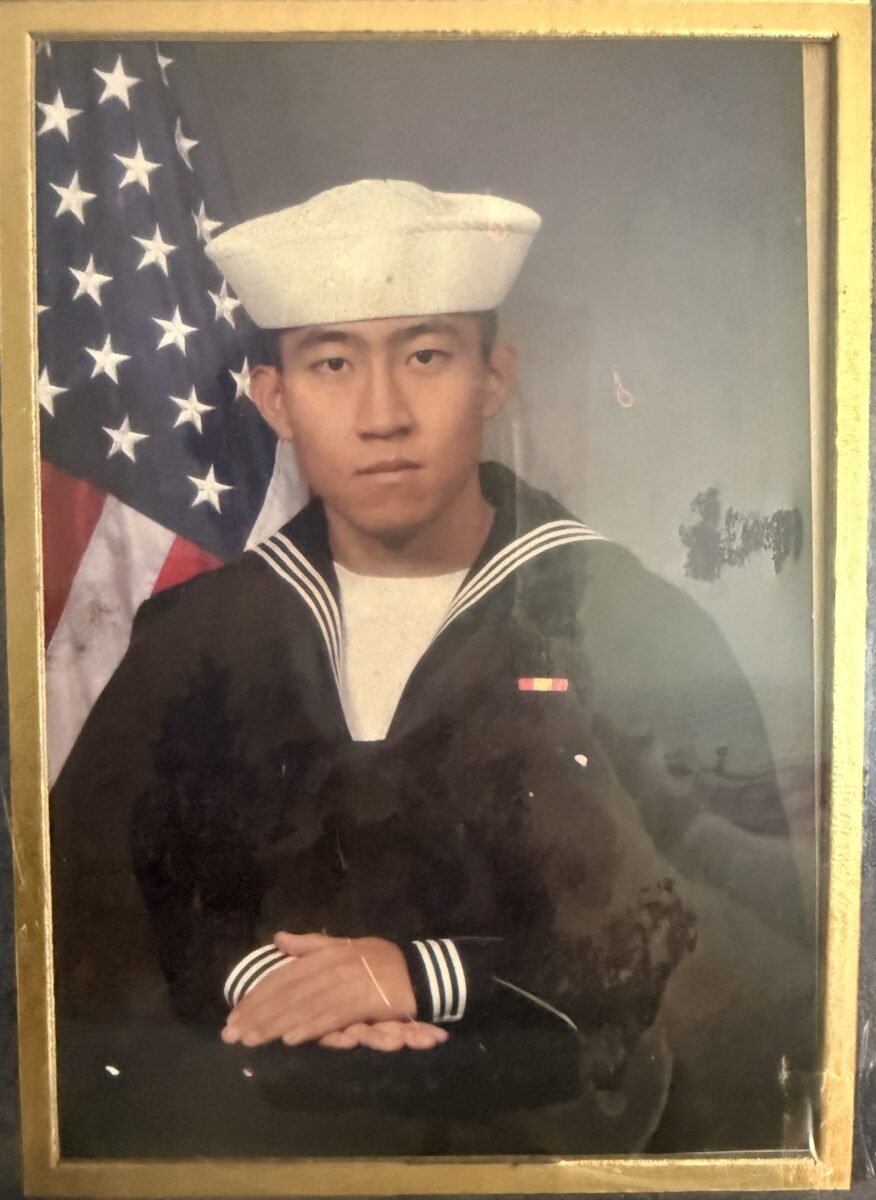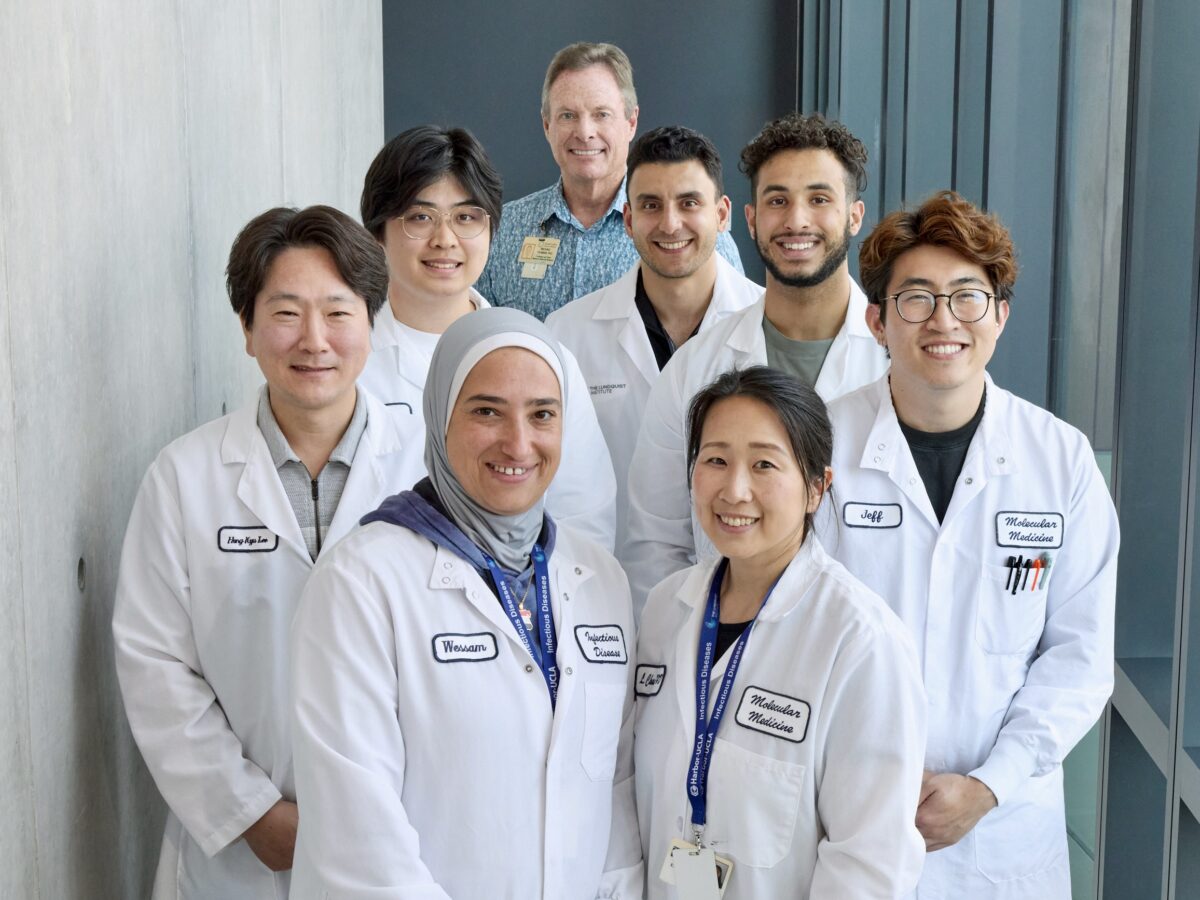When asked about his childhood, Jeff Chen will tell you he “wasn’t the brightest kid,” but what he really means is that he hadn’t found his calling yet. You wouldn’t think that now if you know Chen, an undergraduate student at the University of California Los Angeles (UCLA) and research intern at The Lundquist Institute, Division of Molecular Medicine and Infectious Diseases. Although his career path focuses on science, it took two inspiring teachers from grade school and eight years of military service for Chen to develop the confidence he now has in his future.
Growing up in Pasadena, California, Chen was your average kid. He didn’t have many interests and kept a low profile in school and at home. This changed when Chen met Ms. Quan, a math teacher in middle school, that ignited a curiosity in STEM and challenged his perspective about his life’s purpose. “Ms. Quan just saw something in me that others hadn’t before, it’s the same thing for Ms. Maloney, too,” said Chen.
Ms. Maloney, his biology teacher then, gave him the affirmation he didn’t know he needed. “I remember doing dissections in lab and I’d hear Ms. Maloney instructing me but also acknowledging my effort,” he added. Chen said that both teachers helped him form a foundation and belief that he wasn’t just passionate about science, he was good at it.
Like many, Chen couldn’t afford to pay for college. As the oldest sibling of two, he didn’t want to financially burden his parents knowing that his younger siblings would eventually pursue higher education, too. His solution? The United States military.

“Joining the Navy wasn’t just about paying for college, it was an investment in myself,” Chen said. Motivated by the belief that his decision would benefit himself and his family, Chen enlisted immediately after graduating from high school. Later, that driving force would evolve into a purpose of serving others and a desire to do good in the world as a member of the Hospital Corpsman—equivalent to a combat medic.
During his military service, Chen learned that the Marine Corps does not have a medical division, therefore relying on Navy corpsmen for medical aid. This made Chen reconsider his decision to become a diver medic. “I was also learning about the high casualty rate and trauma impact at that time. So, I decided to volunteer for front-line service,” explained Chen.
Of the eight years he dedicated to the military, Chen spent four years in the 1st Battalion, 5th Marines which on order, protects lives and peace even when firepower and close combat are required. When deployed to Helmand Province, Afghanistan, he provided front-line trauma support—stabilizing wounded soldiers and saving lives.
When he was later deployed to Darwin, Australia, Chen helped establish the first pharmacy Standard Operating Procedure (SOP) for the base. It was there that he learned the importance of medical logistics and sustainability, incorporating that knowledge into the SOP that influenced the pharmacy’s infrastructure and operations. Chen received an award recognizing his contribution to the SOP that is still in use today, as well as his service of saving lives during combat.

If you meet Chen today, he is far different than the boy he describes from his childhood. After the exposure he has endured over his lifetime so far, he speaks about life experiences with a sense of compassion and humility. Guided by a “do no harm” philosophy, Chen believes in using his hands as instruments of service and healing—something he believes he can do while supporting research efforts at The Lundquist Institute.
Under the direction and mentorship of Liana Chan, PhD, and Michael Yeaman, PhD, MSc—investigators in Molecular Medicine and Infectious Diseases at The Lundquist Institute—Chen has had a front row seat in observing how their science is opening new doors to prevent and treat methicillin-resistant Staphylococcus aureus (MRSA) infections that are not treatable using gold-standard antibiotics. “Our goal is to understand bacterial persistence and use that knowledge in therapeutic development,” he said.
In his recent visit to the Lundquist Institute, Senator Bill Cassidy emphasized the importance of such a mission. A physician by training, Senator Cassidy underscored how research being done today at The Lundquist Institute is creating better preventive and treatment options for tomorrow. Chen had the opportunity to meet directly with Senator Cassidy and exchange viewpoints on this mission that they and The Lundquist Institute share so deeply.

Chen identified parallels between Dr. Chan and Dr. Yeaman’s research to his combat experience, where infections often threatened soldiers even after stabilization. The last year spent at The Lundquist Institute has inspired him to play an active role in conducting or applying impactful medical research. He views science and medicine as acts of service, just like his military role. “Whether it be through battlefield medicine or curing infections in a community, I want to help give others more time, more life,” said Chen.
Only months away from graduating with his Bachelor of Science degree from UCLA, Chen certainly gained more than he imagined when he enlisted into the military in 2011. Aside from a tuition-free college experience, a veteran benefit he can also share with his younger sibling, Chen has discipline, direction, and drive that will take him even farther—a reality his older and younger self can be proud of.
